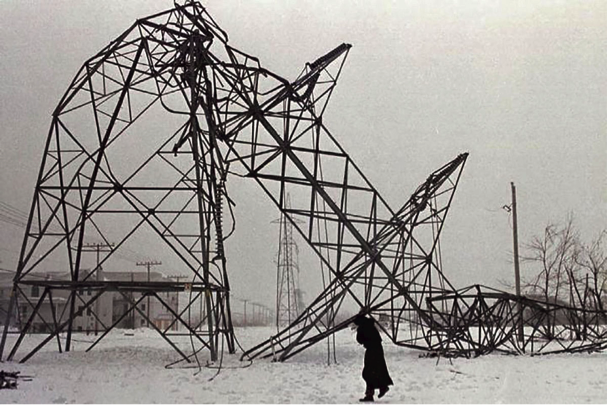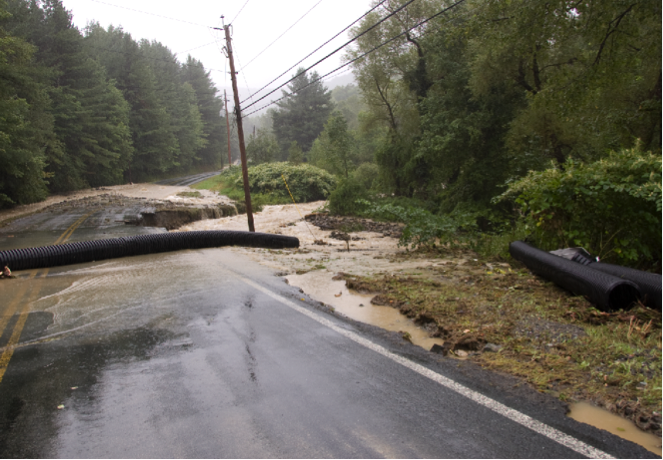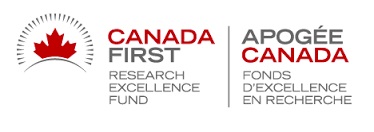Overview

The Climate-Related Precipitation Extremes project is funded by the GWF research program and is motivated by the need for climate-related information expressed in almost all GWF letters of support.
The overarching goal of this project is to support planning for, preparing for, and adapting to the environmental, health and economic impacts of identified critical climate-related precipitation extremes.
A comprehensive investigation of the climate and climate modelling issues of water-related extremes will provide users and GWF participants with in-depth insights into climate impacts across several sectors. The sectors that have been identified to be directly related to water issues or influenced by changes in water availability are:
- Agriculture:
Given the current and future climatic conditions and the ultimate impacts that would result on water supplies and consequently on agricultural productivity, the identification and development of plans for rational use and conservation of water resources are of substantial need for agriculture. Critical climate-related issues associated with this sector are linked with crop and livestock water footprints, land surface change, extreme precipitation events, sub-seasonal variability that affects the timing of crop management activities, and changes in the risk profile that crop insurance attempts to mitigate. Within the climate extremes project, we will investigate past and future projected changes of drought and short-duration extreme precipitation events. Both global and regional climate models as well as high-resolution models such as weather research and forecasting (WRF), will be evaluated, with a focus on identifying emergent constraint for the near future (2020-2040), mid-century (2041-2070) and end of century (2071-2100) periods.

- Electrical utility
Water supply is fundamental to the electrical utility sector and is ultimately determined by climate. The study of extreme events in a changing climate will, therefore, be helpful from multiple perspectives. The climate extremes project will provide better insights for assessing the susceptibility of Canada’s electrical utilities to water-related climate conditions such as excessive moisture and drought, precipitation extremes and freezing rain. This will be performed using global, regional and Weather Research and Forecasting simulations to study projected changes in extremes frequency, intensity and spatial characteristics for near future, mid-century and end of century periods. Precipitation observations from multiple sources will be used to evaluate model performance.

- Engineering Design:
Canada’s infrastructure consists of all building types, including, energy production and distribution infrastructure, transportation infrastructure, utilities, and water storage/control structures. This infrastructure, valued at $3,600B (in 2007 dollars), is constructed using climatic “design values”. Given the current and projected climate conditions, updating engineering codes and standards with respect to climate change is highly recommended. In this direction, this research project will focus on modern statistical approaches that involve regionalization and explicit modelling of spatial dependence. The convection permitting model (such as WRF) simulations and the conventional regional climate model simulations will be used to evaluate the proposed methods and quantify the reductions in uncertainty that can be obtained via regionalization and the modelling of spatial dependence amongst extremes.

- Health:
Climate change is expected to engender severe weather including high-intensity storms and resultant flooding, extreme humidity/ high-temperature events, and prolonged dry conditions. Such climate extremes can have direct impacts on the human health affecting mainly the vulnerable populations such as seniors, children, the socially disadvantaged, indigenous populations and the chronically ill. A number of indirect impacts on health can also be resulted through damaging or disrupting health facilities or through impacts on mental health and well-being. Approaches adopted in this project will address two major issues associated with health sector namely studying the projected short duration precipitation events using Weather Research and Forecasting model and other models outputs, as well as changes in drought characteristics, including their extent, frequency, and location. Insights will help public health officials and partners to prepare for these events.

- Insurance:
The increase in the likelihood and intensity of extreme weather events is a big issue for reinsurers: more extremes mean more claims and therefore less profit. The main climate events related to catastrophic insurances losses are short duration, high-intensity precipitation events, damaging hail, and freezing precipitation since these are among the most important precipitation-related extremes that can create catastrophic insured losses. The ultimate goal of this research project is to provide tailored information and guidance on changing magnitudes, return periods, and variability changes of these extreme precipitation-related events for near future, mid-century and end of century periods, based on historical events and future climate projections.

Major Funding Partners
Canada First Research Excellence Fund (CFREF) is a federal program which aims to place Canada at the forefront of global research that is of economic benefit to Canada.
In September 2016, the University of Saskatchewan was awarded $77.84 million over seven years from CFREF to establish the CFREF project “Global Water Futures: Solutions to Water Threats in an Era of Global Change”. GWF has grown to a total funding package of $143.67 million through linked contributions from the University of Saskatchewan ($17.5 million), University of Waterloo ($15 million), McMaster University ($12.14 million), and Wilfrid Laurier University ($10.58 million) and various industrial partners.
Major Partners
GWF is a research program led by the University of Saskatchewan that is funded in part by the Canada First Research Excellence Fund. In June 2017, funding for Years 1-3 has been allocated to the climate extremes project. This project also benefits from substantial support from the Co-PIs and Co-Is, from collaborators and from various industrial partners as listed below:
- Canadian Universities
- Industry
- Provincial Government
- Federal Government
- Non-Governments organizations
Contact Us
For questions and assistance, please contact Dhouha Ouali.


